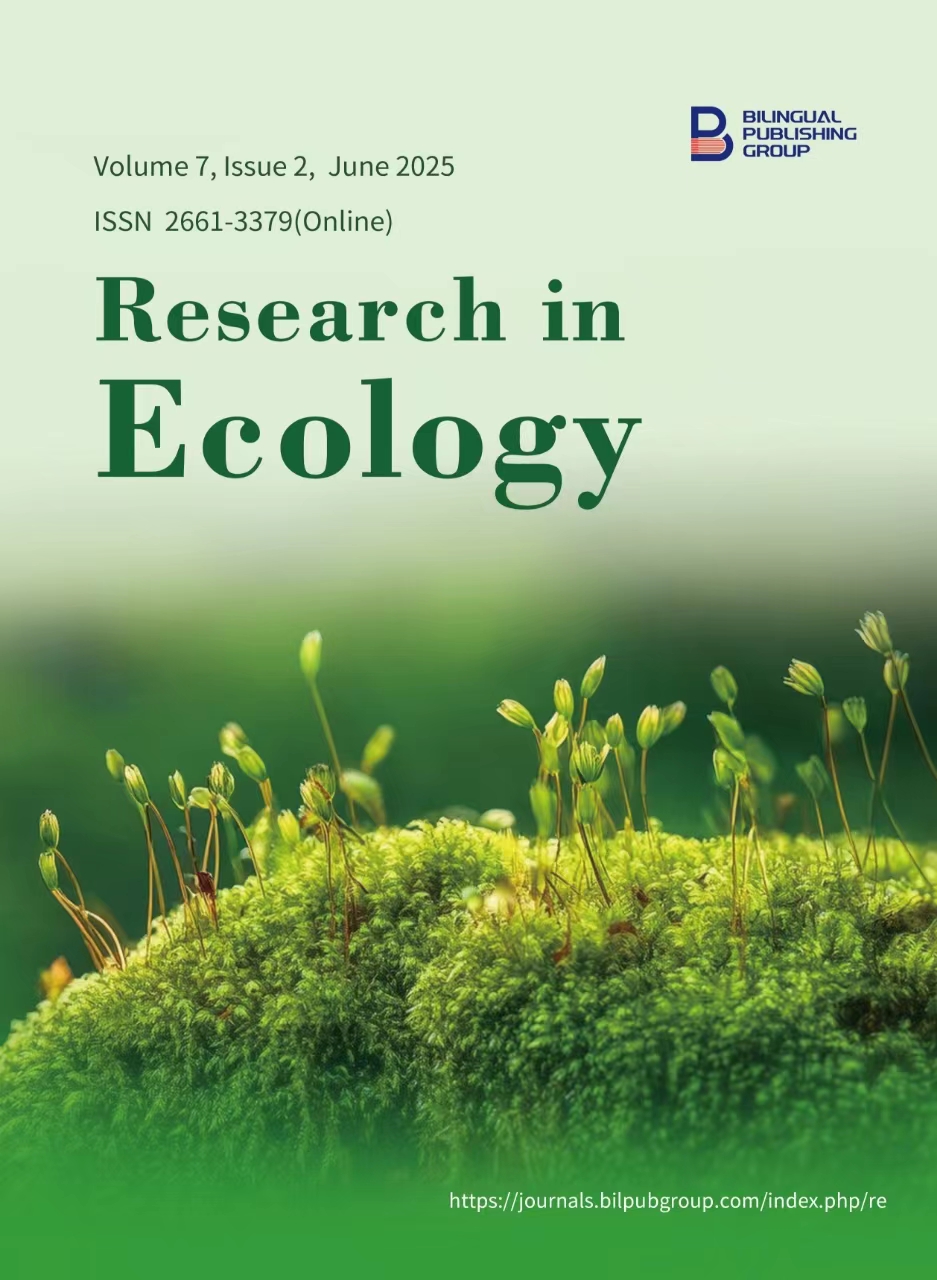
Analysis of Ecological Compensation Willingness and Influencing Factors of Public Welfare Forest—Take Yulong County, Lijiang City as an Example
DOI:
https://doi.org/10.30564/re.v7i2.8685Abstract
The construction of ecological public welfare forests is an important ccomponent and foundation of building a beautiful China and plays an important role in the construction of ecological civilization. As an important barrier to maintaining ecological balance and ensuring ecological security, ecological public welfare forests play an extremely important role in human survival and development. The construction and management of ecological public welfare forests can bring many ecological benefits to the local area; Yulong County has effectively improved the ecological environment after years of ecological public welfare forest construction. Therefore, promoting the healthy development of ecological public welfare forests is of great significance. Based on the data from the field questionnaire survey in Yulong County, this paper employs a binary regression model to analyze the influencing factors of willingness to pay for ecological compensation. It identifies the existing problems in the ecological compensation of public welfare forests in Yulong County and puts forward corresponding recommendations. These include improving the compensation policies for public welfare forests, strengthening system construction, adjusting the rural industrial structure, and increasing the income levels of farmers. The aim is to provide a reference for improving the management level and scientific management of ecological public welfare forests in Lijiang City and to achieve the management goal of continuously and stably exerting various ecological and social benefits of ecological public welfare forests.
Keywords:
Yulong County; Ecological Compensation for Public Welfare Forests; Willingness of Forest Farmers; InfluencingReferences
[1] Wang, X., Han, Y., Sun, S., et al., 2012. Thoughts on the present situation and management countermeasures of ecological public welfare forests in Liaoning Province. Liaoning Forestry Science and Technology. 6, 35–36.
[2] Jiang, L., 2010. Study on ecological compensation for public welfare forests in China. Hunan Agricultural Science and Technology. 8, 22–24.
[3] Li, J., 2012. Investigation and analysis of the compensation of ecological effects of public welfare forests in Yunnan Province. College of Management Cadres of the Ministry of Agriculture. 11(8), 88–89.
[4] Du, Z., Luo, M., Cheng, Q., 2011. Discussion on the present situation and countermeasures of compensation for forest ecological benefits of provincial public welfare forests in Yunnan Province. Management of Forestry Resources. 6(3), 20–21.
[5] Qi, L., 2004. A review of the literature on research in ecological public welfare forests. Journal of Agricultural Book Intelligence. 7(7), 97–98.
[6] Hong, S., Ma, P., Guo, H., 2001. Exploration of ecological compensation systems. Environmental Science and Technology. 5, 4–7.
[7] Myint, T., Luo, Z., 2008. Forest zoning for the ecological public good and the maintenance of farmers’ interests. Forestry Economic Issues. 28(4), 93–96.
[8] Zhu, Z., Shen, Y., Wu, W., et al., 2010. Empirical analysis of the willingness of farm households to participate in the construction of ecological public welfare forests. Journal of Zhejiang Forestry College. 27(3), 430–436.
[9] Hao, C., Yang, L., Wen, Y., 2010. Analysis of the stakeholder game in the reform of collective forest right system in ecological public welfare forest. Forestry Economy. 7, 26–29.
[10] Zhang, X., Leng, X., 2010. Empirical analysis of factors affecting farmers’ willingness to operate in ecological forests—based on an investigation in Yichun City. Jiangxi Province. Journal of Yichun University. 32(6), 47–49.
[11] Jiang, B., 2011. Empirical analysis of factors influencing farmers’ willingness to participate in the construction of public welfare forests - based on questionnaires in Guangxi, Hunan and Henan provinces. Forestry Economics. 6, 59–64.
[12] Yang, L., Wen, Y., Zhang, Y., 2013. Analysis of the influence of forest farmers’ wishes on the efficiency and mechanism of ecological public welfare forest management and protection - taking the mountainous counties of Beijing as an example. Resource Science. 35(5), 1066–1067.
[13] Qian, L., Zhi, L., Qi, X., et al., 2011. Investigation and analysis of forest farmers’ management willingness after collective forest reform in Tianbao District—taking Yulong County as an example. Forestry Economic Problems. 8(4), 325–326.
[14] Li, R., Hu, L., 2006. Discussion on project management of ecological benefit compensation fund for national key public welfare forest in Lancang County. Forestry Survey Planning. 31(2), 85–87.
[15] Wang, Z., 2010. Difficulties and countermeasures of ecological compensation for public welfare forests in the Pearl River Basin—Take Guizhou Province as an example. Journal of Party School of Guiyang City. 2(111), 49–50.
[16] Zhi, L., Fan, S., Li, Q., et al., 2013. Empirical analysis of farmers public welfare forest zoning willingness—Take Wulong County and Yulong County of Tianbao project area as an example. Forestry Economy. 8, 106–109.
[17] Zhi, L., Wang, S., Li, Q., et al., 2012. Analysis of the influencing factors of farmers willingness to invest in collective public welfare forests after forest reform—Take Wulong County, Huili County and Yulong County of Tianbao Project area as examples. Forestry Economy. 3, 28–31.
[18] Yang, X., Zhou, S., 2010. Summary of research on ecological benefit compensation of public welfare forests. Anhui Agricultural Science. 38(21), 59–61.
Downloads
How to Cite
Issue
Article Type
License
Copyright © 2025 Falin Ding, Chong Zhou

This is an open access article under the Creative Commons Attribution-NonCommercial 4.0 International (CC BY-NC 4.0) License.




 Falin Ding
Falin Ding






